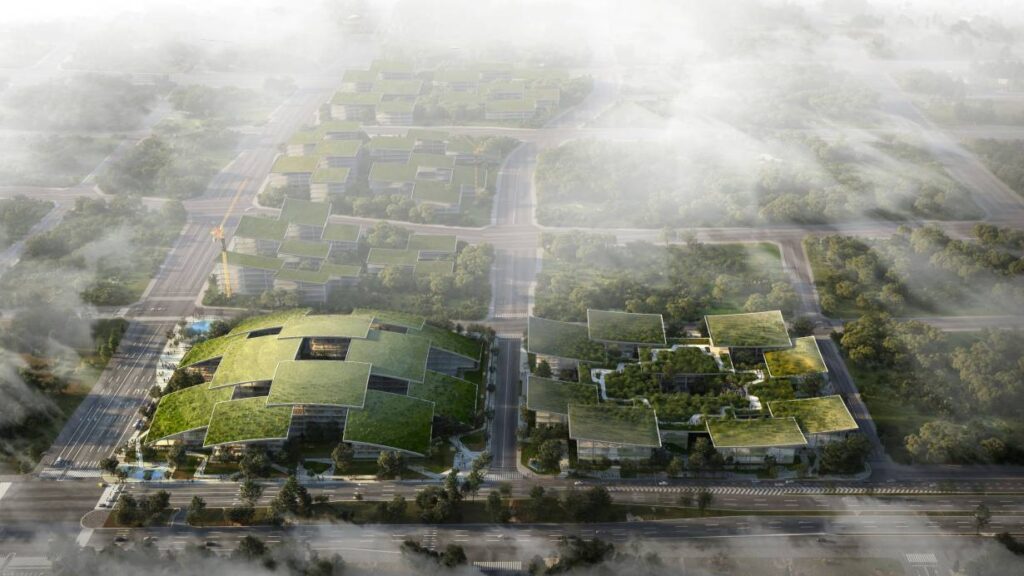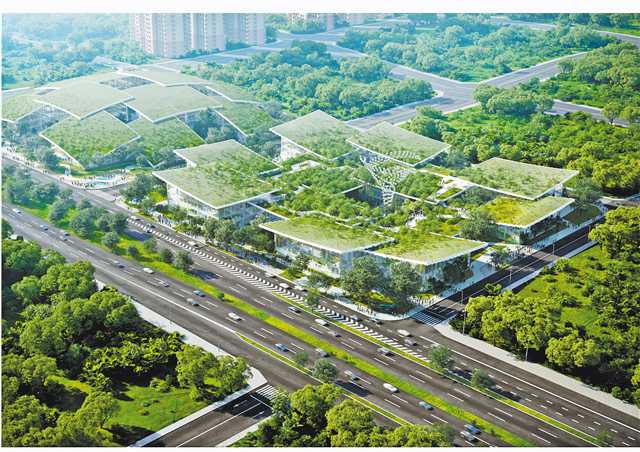Danish architecture firm BIG and Chinese tech company Terminus present plans to build an AI-run city in Chongqing
From robots that deliver coffee to office chairs that rearrange themselves after a meeting, a Smart City project in China aims to put artificial intelligence in charge. This is the content of the Cloud Valley project, which at first raised some doubts.
The Danish architecture firm BIG and Chinese technology company Terminus discussed plans to build an AI-run campus-style development in the southwestern Chinese city of Chongqing during an online panel at Web Summit, a global technology conference. The project, called Cloud Valley, plans to use sensors and devices connected via Wi-Fi to collect data on everything from weather and pollution to people's eating habits to automatically meet residents' needs.

A little Hill Valley, a little Truman Show
I like this “neoclassical” idea of a village where when you arrive, even if it's your first time there, the bartender knows your favorite drink. When our environment becomes sensitive and sentient a place can actually recognize people arriving. Even the citizens. For example, in a smart city like this, houses can directly open the door when their owner arrives, so that he doesn't have to look for keys.
Le cities around the world they run to embrace technology in an effort to improve urban life by collecting data and by changing spaces to tackle problems such as pollution and crime. China seems to be on top of this trend, and is aiming to build as many as 500 cities built on a technological basis. Since last April (the date of its conception), the Cloud Valley project has evolved to include a smart city of 4 million square meters (200 football fields) where technology allows people to live more comfortably by anticipating their needs. Of course, one must feel observed and listened to.
How does Cloud Valley, the smart city where artificial intelligence rules, work?
A control, I'm sorry to use the term but I can't find any other, so totalitarian of the AI leads to sensational results. In a riot of hanging gardens and quiet avenues, when the light hits the houses in the morning, the windows open by themselves. And they do this by adjusting themselves to allow the light to wake up residents at times that each of them prefers.
When the house makes sure the guest is awake, a virtual housekeeper called Titan arrives. A sort of Iron Man's "Jarvis" who selects breakfast, matches your clothes to the weather and presents you with the plan for the day. Ready, set, it's like being in an episode of the Jetsons.
The smart city, which includes offices, homes, public spaces and self-driving cars, is expected to be completed in about three years, according to Terminus.
Doubts about privacy are inevitable
As with other smart cities, Cloud Valley's approach has also raised privacy concerns. Eva Blum-Dumontet, a senior researcher at the British advocacy group Privacy International, said smart cities risk becoming a threat to human rights if companies and governments don't take steps to limit surveillance and ensure inclusivity.


